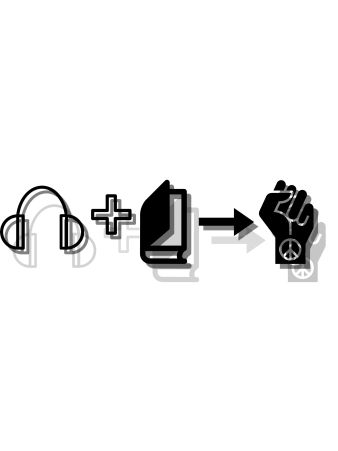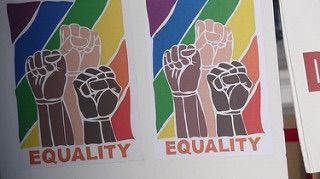
ECG courses have grown in number and desire to encourage students in making changes to the world around them.
“The persuasion doesn’t go away,” Phillip Campbell, Cabrini education professor, said. “Being persuaded to be the change agents at a young age, I think that is one of the strengths of our ECG programs, period.”
Campbell is also an instructor for ECG 200, Hip-Hop, Words in Action. The course is a continuum of the spring 2015 ECG 100, Hip-Hop, a Language of Social Justice. This semester he is partnering with Blackboard Labs, an after-school music production club for students aged 13 to 19.
“The students use hip-hop as a vehicle for social justice in that all of the songs they make. They keep it real,” Campbell said.
For the ECG 200 class, Campbell will introduce Blackboard Labs’ program to a school in Norristown, where his students will engage in conversation with participating children. They will lead discussions about social justice issues within the community and about the music they are making and what it means to be creating such music. He sees this class as having a future past the fall semester.
“I am hoping to run it next semester as well because if we start this after-school program it does not make sense not to run the class every semester,” Campbell said.
The list of ECG courses for the fall semester revealed many new additions in the 100, 200 and 300 ECG course levels. Mentoring experiences and topics ranging from film and media studies to dystopian societies fit comfortably with traditional classes, such as Dating and Domestic Violence. Campbell had encouragement for the new additions like his.
“We are starting to add these other classes and it is a positive step in the right direction,” Campbell said.
ECG’s are much more than just three classes needed to fulfill the college’s core curriculum. These classes allow students to think of ways to make change in their local communities and allow them to put these thoughts into action several times before graduation. This exposure keeps alive the spirit of creating stories that matter long after being handed a diploma.

“If these conversations don’t happen until you’re 25, 30 or 35, and you are not thinking about it for another 8 to 12 years, then so much life happens to you that it is harder to wrap your mind around being a change agent,” Campbell said.
ECG courses bring together students of all backgrounds, regardless of divisions, everyone is united in making a change for the desired topic.
“Here in these ECG classes, young people find themselves with like-minded people who may or may not look like you but are interested in the same issues and can then form partnerships and allegiances as you grow old together,” Campbell said.
“In very short form, you’re going to be our country’s leaders,” Campbell said. “Your willingness to deal with the hard issues is going to put you in a place where you’re going to be leaders in the world.”
These courses allow for the growth of students as a class and as individuals by challenging the thought process.
“These are classes that are somewhat outside the comfort zone of some students,” Campbell said. “They have to use a different part of their brain to engage with the class. I think that is the real strength of the ECG program.”


